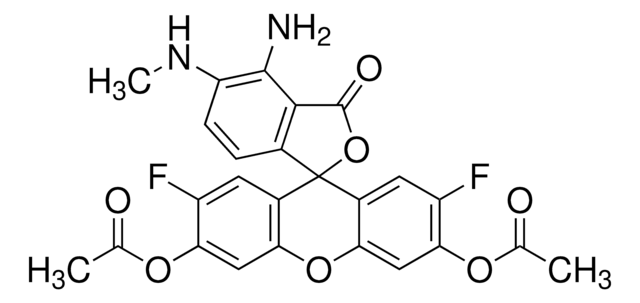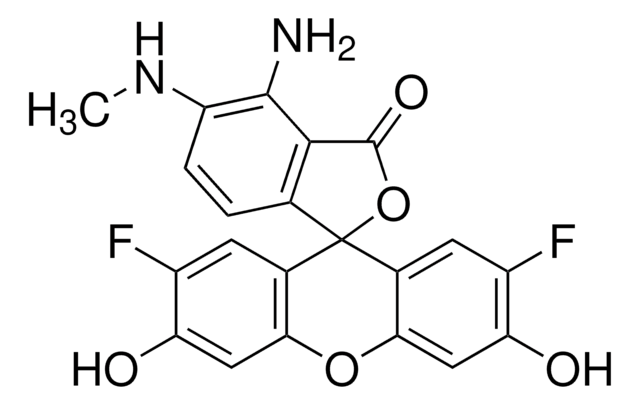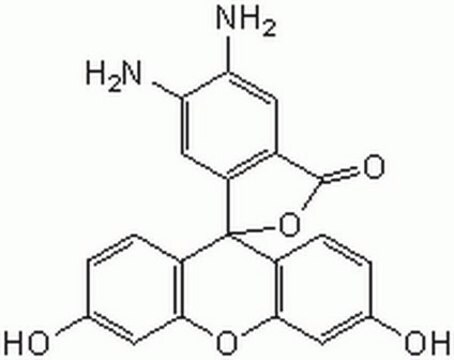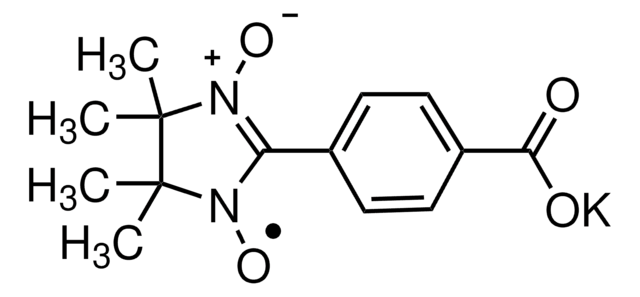D1946
DAF-FM DA
≥98% (HPLC)
Synonym(s):
4-Amino-5-(N-methylamino)-3′,6′-bis(acetyloxy)-2′,7′-difluoro-spiro[isobenzofuran-1(3H),9′-[9H]xanthen]-3-one, Diaminofluorescein-FM diacetate
About This Item
Recommended Products
Quality Level
Assay
≥98% (HPLC)
form
film
storage condition
desiccated
color
colorless to yellow
fluorescence
λex 500 nm; λem 515 nm in DMSO
shipped in
wet ice
storage temp.
−20°C
SMILES string
CNc1ccc2c(c1N)C(=O)OC23c4cc(F)c(OC(C)=O)cc4Oc5cc(OC(C)=O)c(F)cc35
InChI
1S/C25H18F2N2O7/c1-10(30)33-20-8-18-13(6-15(20)26)25(12-4-5-17(29-3)23(28)22(12)24(32)36-25)14-7-16(27)21(34-11(2)31)9-19(14)35-18/h4-9,29H,28H2,1-3H3
InChI key
BEVHTVRRVVEMEF-UHFFFAOYSA-N
Looking for similar products? Visit Product Comparison Guide
Application
Biochem/physiol Actions
Features and Benefits
Caution
Storage Class Code
11 - Combustible Solids
WGK
WGK 3
Flash Point(F)
Not applicable
Flash Point(C)
Not applicable
Certificates of Analysis (COA)
Search for Certificates of Analysis (COA) by entering the products Lot/Batch Number. Lot and Batch Numbers can be found on a product’s label following the words ‘Lot’ or ‘Batch’.
Already Own This Product?
Find documentation for the products that you have recently purchased in the Document Library.
Customers Also Viewed
Articles
We offer many products related to nitric oxide synthases for your research needs.
Nitric oxide (NO) as a signal transporter in neurons, endothelial cells and in the immune system.
Our team of scientists has experience in all areas of research including Life Science, Material Science, Chemical Synthesis, Chromatography, Analytical and many others.
Contact Technical Service










